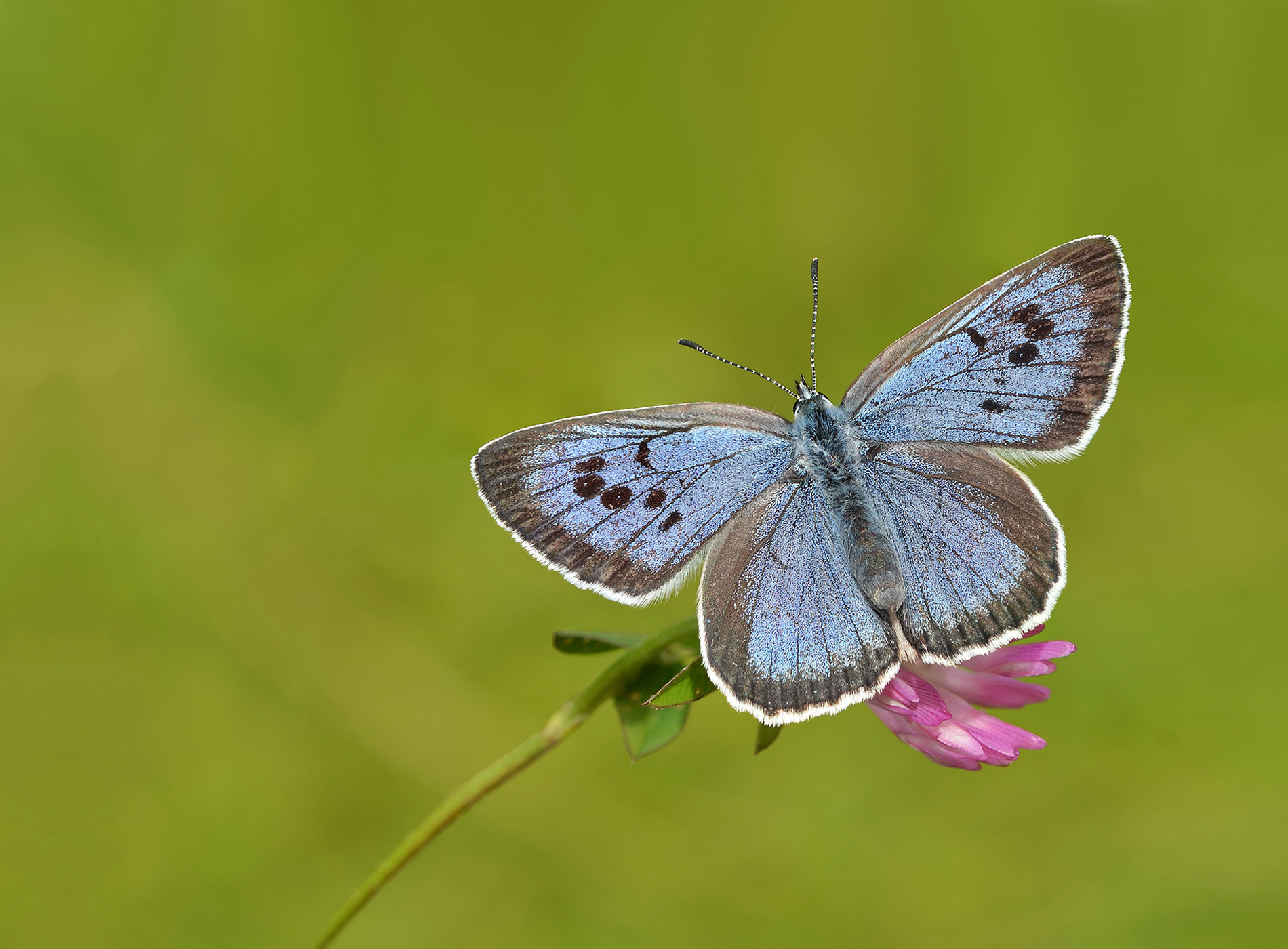One of the UK’s rarest butterflies - the Large Blue - has declined this summer at its Somerset stronghold, Butterfly Conservation has revealed.
The fall in numbers is due to some extreme weather experienced over the last couple of years, which has created difficult conditions for the butterfly.
After the Large Blue became extinct in the UK in 1979, Butterfly Conservation worked in partnership with other organisations to reintroduce the species. Since 1984, the number of successful colonies in the South West has increased to more than 30 sites, with The Polden Hills near Yeovil supporting around 80% of the Large Blue Population in Britain.
This summer, weekly surveys at one of the areas within The Poldens recorded less than half the number of Large Blue butterflies than in 2012, where 12 were seen.
A £50,000 funding grant from Biffa Award is now being used to set up a new project to ensure the rare butterfly’s survival. Led by Butterfly Conservation, ‘Securing the Polden’s Large Blue Landscape’ will run from this autumn up until February 2016, aiming to increase the current population and recolonize five former Large Blue sites.
Scientist and Large Blue expert, David Simcox, played a vital role in the Somerset reintroduction in the 1990’s and will help guide the new project. He explained: “Over the last two years Somerset has experienced some of the most extreme weather conditions since records began, including extreme flooding and droughts, which have unfortunately reduced the numbers of Large Blue butterflies in the region.”
He added that new volunteers were key to securing the butterfly’s survival: “Scientific research (by the University of Oxford) has identified the conservation management needed to help make the butterfly more resilient to climatic challenges in the future and these will be implemented during this project. The Polden Hills Large Blue populations are managed by highly skilled site managers from several conservation organisations, helped by enthusiastic and capable volunteers. With much work to do we would like to welcome new volunteers to work on this exciting and ground-breaking project”.
Butterfly Conservation’s Somerset Branch are now asking people to come forward and help them maintain the habitat of this beautiful butterfly throughout autumn and winter.
Project Officer Rachel Jones said: “This is a rare chance to help with the restoration and management of unimproved limestone grassland habitat for a globally endangered butterfly. Volunteer work will involve cutting and clearing scrub during the winter and there may be opportunities to help with monitoring the butterfly in the summer.”
Controlling scrub will increase the area of limestone grassland habitat and encourage the growth of Wild Thyme flowers that the butterfly feeds and breeds on. It also helps create perfect conditions for Myrmica sabuleti – the only type of red ant which can be tricked into taking the Large Blue caterpillar inside its nest. Once there it will feed on ant grubs for most of the year before finally emerging as a butterfly.If the surrounding grassland is even a few centimetres too long, the ants will disappear, and with it, the butterflies.
If you would like to volunteer on the project, or to find out more about volunteer tasks, please contact Project Officer Rachel Jones by emailing: [email protected] or calling 01929 406018.
If you would like to volunteer for Butterfly Conservation but don't live in Somerset, please click HERE.
Securing the Polden’s Large Blue Landscape is a project within the East Poldens Landscape Partnership with Butterfly Conservation, J&F Clark Trust, Millfield School, National Trust, University of Oxford, Somerset Wildlife Trust and South Somerset District Council, with support from Natural England, Biffa Award and the Royal Society of Wildlife Trusts.
Since 1997, the Royal Society of Wildlife Trusts (RSWT) has been awarding grants to environmental and community projects under the fund name Biffa Award. The fund administers money donated by Biffa Group Ltd, a leading integrated waste management business. To date, Biffa Award has awarded grants totalling more than £150 million to thousands of worthwhile projects. www.biffa-award.org


